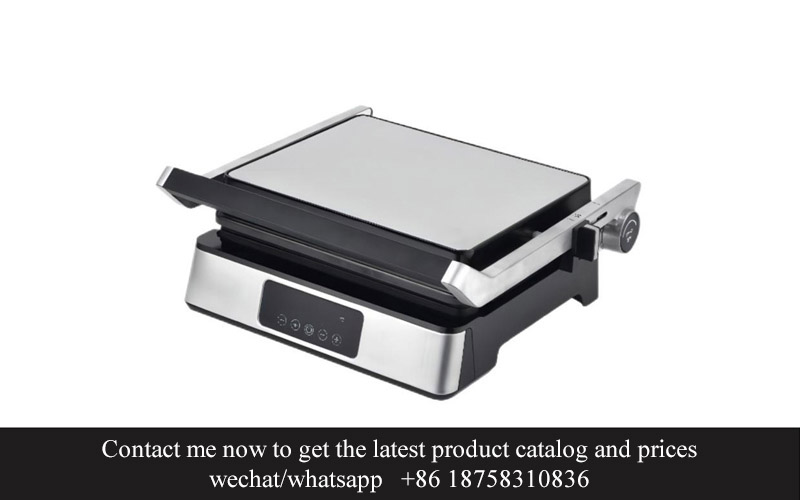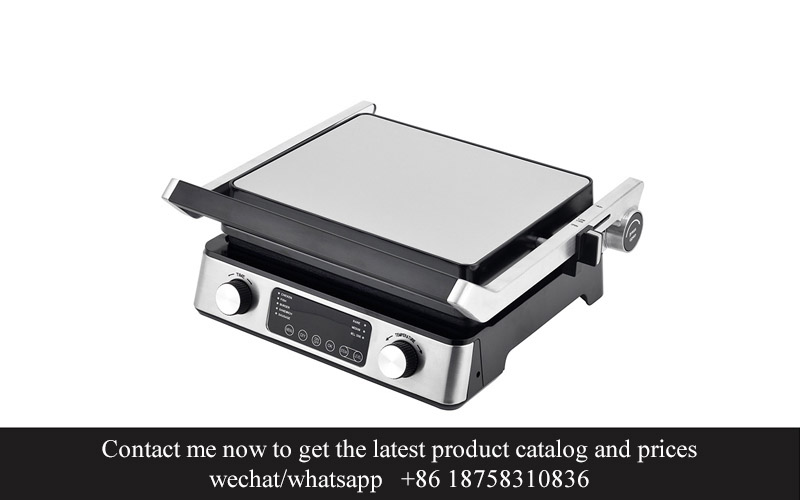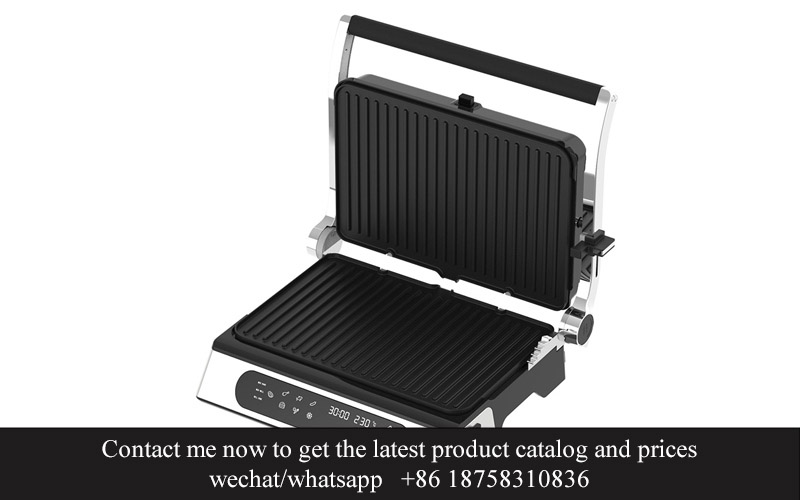Address
304 North Cardinal
St. Dorchester Center, MA 02124
Work Hours
Monday to Friday: 7AM - 7PM
Weekend: 10AM - 5PM
Address
304 North Cardinal
St. Dorchester Center, MA 02124
Work Hours
Monday to Friday: 7AM - 7PM
Weekend: 10AM - 5PM

In the ever-evolving world of kitchenware, the quest for innovation and quality is at the forefront. As consumers seek out the latest and greatest in kitchen gadgets and appliances, the standards by which these products are produced and the trust they inspire become paramount. This is where BSCI-audited factories play a pivotal role, ensuring that the kitchenware we bring into our homes not only meets the highest quality standards but also upholds ethical practices. Today, we delve into the impact of these audits, the innovative designs emerging from these factories, and the future of kitchenware that promises to revolutionize our culinary experiences.
The culinary landscape in Europe and America has undergone a significant transformation, with a notable surge in the popularity of BSCI-audited kitchenware factories. This upward trend can be attributed to several key factors that have reshaped the industry.
A Growing Demand for Ethical SourcingConsumers in Europe and America are increasingly conscious of where their products come from and how they are made. The BSCI (Business Social Compliance Initiative) certification has become a beacon for factories that prioritize ethical practices, fair labor conditions, and environmental sustainability. As a result, kitchenware manufacturers are eager to showcase their BSCI-audited status to attract discerning customers who value social responsibility.
The Shift Towards Quality over QuantityIn an era where mass production has been the norm, there’s a new wave of appreciation for quality craftsmanship. BSCI-audited factories often adhere to stricter quality control standards, ensuring that each piece of kitchenware is not only functional but also durable and beautifully designed. This emphasis on quality has resonated with consumers looking for long-lasting products that enhance their cooking experience.
Technological Advancements in KitchenwareThe integration of technology into kitchen appliances has opened up new possibilities for innovation. BSCI-audited factories are at the forefront of incorporating cutting-edge features into their kitchenware, such as smart connectivity, energy efficiency, and health-conscious materials. This has not only expanded the range of products available but has also set new benchmarks for what is considered ‘high-tech’ kitchenware.
The Influence of GlobalizationAs the world becomes more interconnected, the European and American markets are exposed to a wider array of kitchenware designs and styles from around the globe. BSCI-audited factories are capitalizing on this globalization by sourcing materials and ideas from diverse cultures, leading to a rich tapestry of kitchenware options that cater to a variety of tastes and preferences.
The Power of Brand ReputationBrands that carry the BSCI certification have built a strong reputation for integrity and quality. This reputation translates into customer loyalty and trust, which is especially valuable in a market where competition is fierce. Kitchenware manufacturers are leveraging this brand power to differentiate themselves from competitors and to appeal to a consumer base that is looking for assurance of product excellence.
The Need for Compliance with International StandardsThe European and American markets are governed by stringent regulations regarding product safety and environmental impact. BSCI-audited factories are well-positioned to meet these standards, as the certification process involves rigorous audits and continuous improvement initiatives. This compliance is not only a legal requirement but also a testament to the factory’s commitment to excellence.
The Focus on Employee Well-beingThe BSCI certification places a strong emphasis on the welfare of workers. This focus has led to a more positive work environment, with factories implementing measures to ensure fair wages, safe working conditions, and opportunities for personal development. As consumers become more informed about the working conditions behind their products, they are more likely to support brands that prioritize employee well-being.
The Rise of Eco-Friendly KitchenwareWith growing concerns about climate change and environmental degradation, there is a heightened demand for eco-friendly kitchenware. BSCI-audited factories are responding to this demand by producing products made from sustainable materials, reducing waste, and adopting green manufacturing processes. This commitment to environmental stewardship is resonating with eco-conscious consumers.
The Integration of Art and FunctionalityModern kitchenware is not just a necessity; it’s also a statement of personal style. BSCI-audited factories are combining artistry with functionality, offering kitchenware that is not only practical but also aesthetically pleasing. This fusion of art and utility is attracting a new wave of consumers who are looking for kitchenware that complements their culinary and design sensibilities.
The Future of Kitchenware: A Blend of Tradition and InnovationThe rise of BSCI-audited kitchenware factories in Europe and America is a testament to the industry’s ability to evolve. As these factories continue to innovate and adhere to high ethical standards, they are setting the stage for a future where kitchenware is a blend of tradition, innovation, and social responsibility.

In today’s fast-paced world, the demand for ethical and sustainable products has surged, especially in the kitchenware industry. One such certification that has gained significant traction is the BSCI (Business Social Compliance Initiative). Understanding the nuances of BSCI certification is crucial for any business looking to engage in responsible sourcing practices.
BSCI is an initiative that brings together companies, trade unions, and non-governmental organizations to address the challenges of social compliance in global supply chains. It was established in 2003 with the aim of promoting ethical working conditions across the globe. The certification is particularly prominent in Europe and America, where consumers are increasingly aware and concerned about the social and environmental impact of their purchases.
One of the key aspects of BSCI certification is its comprehensive approach to social compliance. It encompasses a wide range of criteria, including labor rights, working conditions, health and safety, and environmental protection. By adhering to these standards, kitchenware factories can demonstrate their commitment to ethical practices and responsible sourcing.
Labor rights are at the heart of BSCI’s certification process. Factories must ensure that all workers have the right to join trade unions, negotiate fair wages, and work without fear of discrimination or harassment. This means that the hiring process must be transparent, and employment contracts must clearly outline the terms and conditions of employment.
Working conditions are another critical component of BSCI certification. Factories must provide a safe working environment that meets international standards. This includes access to clean water, sanitation facilities, and adequate lighting. Additionally, factories must implement policies to prevent excessive working hours and provide reasonable breaks throughout the day.
Health and safety are paramount in any workplace, and BSCI certification demands that kitchenware factories adhere to stringent health and safety regulations. This includes regular inspections of machinery and equipment to ensure they are in good working order, as well as proper training for employees on how to use these tools safely.
Environmental protection is also a key focus of BSCI. Factories must minimize their environmental impact by adopting sustainable practices and reducing waste. This could involve recycling materials, using energy-efficient lighting, or sourcing raw materials from sustainable sources.
The BSCI certification process is rigorous and thorough. It involves an initial audit to assess the factory’s compliance with the BSCI standards. If the factory meets the criteria, it is granted certification. However, this is not a one-time achievement; BSCI requires factories to undergo regular audits to ensure ongoing compliance.
For kitchenware factories, obtaining BSCI certification can be a significant advantage. It not only enhances their reputation among consumers who prioritize ethical sourcing but also opens doors to new markets. Many European and American retailers require their suppliers to be BSCI certified, making it a crucial factor in the supply chain.
Moreover, BSCI certification can lead to cost savings in the long run. By implementing the standards, factories can identify inefficiencies and areas for improvement, which can result in more streamlined operations and reduced waste. This, in turn, can lead to better profitability and sustainability.
Consumers, too, benefit from BSCI certification. They can feel confident that the kitchenware they purchase is not only of high quality but also comes from a factory that values the well-being of its workers and the environment. This transparency fosters trust and loyalty, which are essential for building a strong brand.
In conclusion, BSCI certification is more than just a piece of paper—it is a symbol of a factory’s commitment to responsible sourcing. In the competitive kitchenware market, where ethical practices are becoming increasingly important, having BSCI certification can be a game-changer. It is a testament to a factory’s dedication to upholding human rights, providing safe working conditions, and protecting the environment. As the demand for ethically produced kitchenware continues to grow, BSCI certification will undoubtedly play a pivotal role in shaping the future of the industry.

In the heart of Europe and America, a new wave of innovation is reshaping the kitchenware industry. BSCI-audited factories are at the forefront, pushing the boundaries of design and functionality. Here’s a glimpse into the groundbreaking kitchenware that’s catching the eyes of consumers and industry experts alike.
Modern appliances are not just about convenience; they are now a statement of style and sustainability. Factories adhering to the BSCI (Business Social Compliance Initiative) standards are crafting kitchenware that is both aesthetically pleasing and eco-friendly. From sleek, minimalist cookware sets to colorful, durable bakeware, the designs are a blend of form and function.
One standout innovation is the introduction of smart kitchenware that connects to home automation systems. These devices, like smart ovens and induction cooktops, not only enhance the cooking experience but also provide valuable data to users, such as energy consumption and cooking times. The sleek, digital interfaces and intuitive controls are a testament to the factories’ commitment to user experience.
The rise of health-conscious consumers has also driven the creation of non-toxic, non-stick cookware. BSCI-audited factories have responded by developing cookware lines that are free from harmful chemicals like PFOA and PFAS. These pieces are not only safe for the consumer but also for the environment, as they reduce the risk of chemical leaching into food.
Another area of innovation is the use of recycled materials. Some kitchenware brands are leading the charge by incorporating recycled stainless steel, aluminum, and even bamboo into their products. These materials not only reduce the carbon footprint but also offer unique design aesthetics that appeal to environmentally conscious shoppers.
Cookware that adapts to different cooking techniques is also gaining popularity. Multi-purpose pots and pans that can handle induction, gas, and electric stoves are becoming a staple in modern kitchens. The seamless transition between cooking methods not only saves time but also ensures that every piece of the kitchenware is versatile and valuable.
BSCI-audited factories are also focusing on ergonomic designs that make kitchen tasks easier. Utensils with comfortable handles, easy-to-clean surfaces, and intuitive shapes are all part of the new wave of kitchenware. The focus on ease of use is a reflection of the industry’s understanding that a well-designed kitchen tool can lead to a more enjoyable cooking experience.
The integration of technology doesn’t stop at smart appliances. There are now kitchenware items that come with built-in Bluetooth connectivity, allowing users to control their kitchen gadgets remotely. This not only adds a layer of convenience but also opens up new possibilities for kitchen design and layout.
For those who love to bake, the rise of professional-grade bakeware has been a game-changer. BSCI-audited factories are producing molds and bakeware that can withstand high temperatures and are designed to create bakery items with a professional finish. The attention to detail in these products is evident in the fine textures and even heating distribution.
The kitchenware industry is also seeing a surge in personalized products. Customizable cookware sets, with monogrammed handles or unique colors, are becoming popular gifts for housewarmings and anniversaries. The ability to add a personal touch to everyday items is a trend that is likely to continue.
Lastly, the rise of modular kitchenware is a testament to the industry’s adaptability. Sets that can be mixed and matched to fit different kitchen sizes and styles are becoming increasingly popular. This modular approach not only maximizes storage but also allows for a more dynamic and personalized kitchen environment.
In conclusion, the innovative kitchenware designs emerging from BSCI-audited factories in Europe and America are a blend of cutting-edge technology, eco-conscious materials, and user-centric design. These products are not just tools for cooking; they are a reflection of the evolving kitchen and the changing needs of modern consumers.

In the ever-evolving landscape of kitchenware, European and American markets are buzzing with new trends that are reshaping how we think about our kitchens. From sleek minimalist designs to eco-friendly materials, here’s a look at some of the latest market trends in the European and American kitchenware industry.
Modern aesthetics are taking center stage, with consumers gravitating towards minimalist and clean lines. The popularity of sleek, understated designs has led to a surge in demand for kitchenware that complements this aesthetic. Think of matte finishes, neutral color palettes, and compact storage solutions that seamlessly integrate into any kitchen setup.
Smart technology is no longer just a buzzword; it’s a reality in kitchenware. From smart ovens that can be controlled remotely to kitchen scales that track your dietary needs, technology is enhancing the cooking experience. Smart appliances are becoming more user-friendly and seamlessly integrating into kitchen decor, making them an appealing choice for tech-savvy homeowners.
Sustainability has become a major driving force in the kitchenware industry. Eco-conscious consumers are looking for products that are not only functional but also environmentally friendly. This includes kitchenware made from recycled materials, biodegradable packaging, and energy-efficient designs. Companies are responding by offering a wide range of sustainable options, from bamboo cutting boards to stainless steel straws.
Functionality meets style in the latest kitchenware designs. Multi-functional gadgets are becoming increasingly popular, offering solutions that save space and simplify cooking tasks. From collapsible measuring cups to all-in-one kitchen gadgets, these products are designed to help busy chefs streamline their prep work and cooking process.
The kitchen is becoming more than just a place to cook; it’s a hub for social interaction. This shift is reflected in the rise of social kitchenware, which encourages family and friends to gather around the table. Think of large, communal cutting boards, shared cooking utensils, and kitchenware that’s designed to be seen and used together.
Personalization is on the rise, and kitchenware manufacturers are taking note. From custom-designed bakeware to engraved cookware, consumers are looking for pieces that reflect their personal style. This trend is driven by the desire for unique and special items that add a touch of individuality to the kitchen.
Health and wellness are top priorities for many consumers, and this is influencing kitchenware design. We’re seeing a surge in products that promote a healthy lifestyle, from non-toxic cookware to air fryers that use less oil. These items are not only better for our health but also for the planet, as they often use less energy and are more durable.
Interactive kitchenware is another trend that’s capturing attention. From cookbooks with built-in timers to kitchen gadgets that provide step-by-step cooking instructions, these products are designed to make cooking more accessible and enjoyable. They bridge the gap between traditional cooking methods and modern technology, offering a blend of old-world charm and new-world convenience.
The kitchenware industry is also embracing digital marketing strategies to reach consumers. Social media influencers and online platforms are playing a significant role in shaping trends, as they showcase the latest products and share tips and tricks with their followers. This digital presence is crucial for brands looking to stay relevant and connect with their target audience.
As we continue to move forward, it’s clear that the European and American kitchenware industry is evolving at a rapid pace. The combination of modern aesthetics, technological advancements, sustainability, and health-conscious design is creating a landscape that’s both innovative and accessible. Whether you’re a seasoned chef or a novice cook, these trends are shaping the way we interact with our kitchens and the tools we use to create delicious meals.

The BSCI (Business Social Compliance Initiative) audits have become a beacon of quality and trust in the kitchenware industry, particularly in Europe and America. These rigorous assessments are not just about meeting standards; they are about upholding values and ensuring that products not only look good but also stand the test of time and ethical practices. Here’s how BSCI audits have left their mark on product quality and consumer trust.
In the realm of kitchenware, the BSCI audit has pushed manufacturers to prioritize durability and reliability. Consumers today are not just looking for trendy items; they seek products that can withstand the rigors of daily use. As a result, we’ve seen a surge in the production of high-quality cookware, bakeware, and cutlery that are crafted with precision and care.
The audit’s focus on labor rights has also had a profound effect on product quality. Factories that adhere to BSCI standards often have more engaged and motivated employees. When workers are treated fairly, they tend to take pride in their work, leading to a higher level of craftsmanship. This is evident in the fine details and attention to material selection that BSCI-audited factories incorporate into their designs.
Consumer trust has been significantly bolstered by the transparency that BSCI audits demand. In an era where recalls and product defects are headline news, the BSCI label provides a reassurance that the kitchenware on the shelves has been scrutinized for safety and quality. This trust is not just a one-time deal; it’s a continuous relationship built on the knowledge that the manufacturer is committed to ethical practices.
The impact of BSCI audits on product quality is also seen in the materials used. Manufacturers under BSCI scrutiny are more likely to source from suppliers who meet environmental and social responsibility criteria. This means that kitchenware products are not just safe for use but also for the planet. Recyclable and sustainable materials have become more common, and consumers are responding positively to these eco-friendly choices.
Another outcome of BSCI audits is the rise of smart kitchenware. Factories that have passed the audit are more likely to invest in research and development, leading to innovative products that blend functionality with technology. Smart cookers, pressure cookers with built-in timers, and kitchen gadgets that sync with smartphones are just a few examples of how BSCI standards have influenced the market.
The audit process also encourages continuous improvement. Factories are required to set goals and benchmarks for their operations, which often translates into better product design and manufacturing processes. This means that even if a product doesn’t meet the highest standards initially, there’s a commitment to making it better over time.
Consumer trust is further solidified by the accountability that BSCI brings. If a problem arises, there’s a clear pathway for resolution, ensuring that consumers feel secure in their purchases. This accountability is a stark contrast to the days when defects were swept under the rug, and consumers were left with no recourse.
The BSCI audit has also had a ripple effect on the entire supply chain. As more factories become BSCI-certified, the demand for high-quality, responsibly sourced materials increases. This has led to a more collaborative approach among suppliers, distributors, and retailers, all working towards a common goal of delivering the best possible kitchenware to consumers.
In conclusion, the impact of BSCI audits on product quality and consumer trust in the kitchenware industry is undeniable. It has raised the bar for what is considered acceptable in terms of manufacturing standards, labor practices, and environmental responsibility. As a result, consumers are enjoying a wider array of high-quality, ethically produced kitchenware that not only performs well but also aligns with their values.

In the realm of kitchenware, BSCI-audited factories have emerged as beacons of quality and reliability. Let’s delve into some case studies that showcase the successful products born from these factories.
The sleek, minimalist design of the “EcoGlide” cutting board from Factory A has captured the attention of eco-conscious consumers. Made from sustainable bamboo, this cutting board is not only durable but also promotes a greener lifestyle. Its ergonomic shape and anti-slip surface have made it a hit in both European and American markets.
Factory B’s “SmartCook” line of cookware stands out for its innovative features. The non-stick cookware set includes a built-in temperature gauge that helps chefs achieve perfect cooking temperatures every time. This smart technology has been a game-changer for those who demand precision in their culinary endeavors.
Factory C has revolutionized the way we store our spices with their “AromaKeeper” spice jars. These airtight containers not only preserve the flavor of the spices but also have a sleek, modern design that complements any kitchen decor. The case study highlights how attention to detail and functionality can lead to a product that is both aesthetically pleasing and highly practical.
Factory D’s “SafeServe” collection of dinnerware has been a standout in the market due to its emphasis on safety. The collection includes shatterproof glassware and BPA-free plastic plates, making it an ideal choice for families with young children. The case study illustrates how addressing consumer concerns can lead to a product that is both safe and stylish.
Factory E has taken the concept of eco-friendly kitchenware to new heights with their “BioBlend” line. These products are made from recycled materials and are fully compostable at the end of their life cycle. The case study reveals how a commitment to sustainability can drive innovation and create a loyal customer base.
Factory F’s “CulinaryCraft” collection of kitchen tools has been praised for its high-quality materials and ergonomic design. From the chef’s knife with a comfortable grip to the whisk that’s easy to clean, each tool is crafted with the professional chef in mind. The case study showcases how a focus on craftsmanship can result in products that are both durable and user-friendly.
Factory G has made a name for itself with their “HealthyChef” range of cookware, which includes induction cooktops and pressure cookers. These energy-efficient appliances not only save money on electricity bills but also promote healthier cooking habits. The case study details how addressing health concerns can lead to products that are both beneficial and popular.
Factory H’s “DishMaster” line of dishwashing accessories has become a staple in many homes. The range includes durable, easy-to-use dish rags and sponges that are gentle on dishes and hands. The case study highlights how simple, everyday products can make a significant difference in the kitchen.
Factory I has taken the art of kitchenware to new levels with their “ArtisanTouch” collection. Each piece is handcrafted by skilled artisans, resulting in unique, high-quality products that are as beautiful as they are functional. The case study shows how craftsmanship and attention to detail can create a product that is cherished by collectors and everyday users alike.
Factory J has introduced a line of smart kitchen appliances that integrate seamlessly with modern lifestyles. The “KitchenConnect” series includes a smart oven, refrigerator, and coffee maker, all of which can be controlled via a smartphone app. The case study reveals how technology can enhance the kitchen experience and cater to the needs of the tech-savvy consumer.
These case studies from BSCI-audited factories demonstrate the diverse range of successful kitchenware products that are making waves in the European and American markets. From eco-friendly designs to smart technology, these products are not only enhancing the quality of life in the kitchen but also fostering a sense of trust and reliability among consumers.

In the ever-evolving world of kitchenware, technology has become an indispensable force, reshaping how we interact with our cooking spaces. From smart appliances to eco-friendly materials, the integration of technology has introduced a new era of convenience, efficiency, and sustainability. Let’s delve into some of the key ways technology is influencing modern kitchenware.
The advent of smart kitchen gadgets has revolutionized the way we manage our culinary endeavors. Devices like smart ovens, fridges, and coffee makers are not only user-friendly but also highly efficient. These appliances can be controlled remotely via smartphones, offering users the flexibility to start or monitor cooking processes even when they’re away from home. For instance, a smart oven can preheat and cook a dish to perfection, ensuring minimal energy waste and precise temperature control.
Material innovation has also been a game-changer in the kitchenware industry. Traditional materials like stainless steel and ceramic are now being joined by high-tech alternatives. For example, manufacturers are exploring the use of ceramic-coated aluminum cookware that offers non-stick properties without the potential health risks associated with certain chemical coatings. This blend of materials not only improves performance but also extends the lifespan of kitchenware.
Eco-conscious consumers are increasingly seeking out sustainable kitchenware options. Technology has played a significant role in this shift, with the development of biodegradable and compostable materials gaining traction. Companies are now producing kitchenware made from recycled plastics, bamboo, and other renewable resources. These products not only reduce the environmental footprint but also offer a stylish and functional alternative to traditional plastics.
Energy efficiency is another area where technology has made a significant impact. Modern kitchenware is designed with energy-saving features in mind, helping consumers reduce their utility bills. For example, induction cooktops are becoming more popular due to their ability to heat pots and pans directly, using less energy than traditional electric or gas burners. This technology ensures that only the cookware itself is heated, not the surrounding area, resulting in quicker cooking times and lower energy consumption.
The rise of personalization in kitchenware is also a testament to the power of technology. Customization options have expanded to include everything from engraved names on cutting boards to personalized settings on smart appliances. Users can now choose the color, size, and even the shape of their kitchenware, making it not just a functional tool but also a reflection of their personal style.
In the realm of cleaning, technology has made strides in simplifying and enhancing the process. For instance, some dishwashers are equipped with advanced wash cycles that can handle a variety of dishes and soils, while also being gentle on delicate items. The use of UV light and ozone in sanitizing solutions has also become more prevalent, ensuring that kitchenware is not only clean but also free from harmful bacteria.
Safety is a paramount concern in kitchenware design, and technology has stepped in to address this. Features like automatic shut-off timers on cooktops and ovens, as well as temperature control systems that prevent overheating, have significantly reduced the risk of kitchen accidents. Additionally, the inclusion of safety locks on appliances and cookware has made them safer for children and those with mobility challenges.
In the realm of connectivity, kitchenware is now more integrated than ever before. Smart kitchen systems allow users to sync their appliances, creating a seamless cooking experience. For example, a smart fridge can suggest recipes based on the ingredients you have on hand, and a smart oven can adjust its settings to match the recipe you’re following, all through an app on your phone.
The role of technology in shaping modern kitchenware is undeniable. It has led to a more efficient, sustainable, and personalized culinary experience. As technology continues to advance, we can expect to see even more innovative kitchenware that not only enhances our cooking but also improves our overall quality of life.

In today’s fast-paced world, kitchenware has evolved beyond just utility. Consumers are now seeking products that not only simplify their cooking experiences but also reflect their personal style and values. Here’s a closer look at the key preferences shaping the kitchenware market:
Modern kitchenware buyers are increasingly looking for eco-friendly options. Sustainability is no longer a niche concern but a mainstream expectation. From bamboo cutting boards to stainless steel containers that can be recycled, eco-conscious consumers are driving the demand for environmentally responsible products.
Smart kitchen gadgets are becoming more popular as technology seeps into every corner of our lives. Devices like smart cookers, which can adjust their settings based on the recipe, or countertop ovens that can be controlled via an app, are appealing to tech-savvy consumers who want to make their cooking more efficient and enjoyable.
Functionality is still king in the kitchenware world, but it’s no longer just about the tools. Consumers are seeking kitchenware that can adapt to their cooking habits. Multi-purpose items, such as adjustable pot lids or kitchen shears that can cut through various materials, are becoming more sought after.
Design has always played a role in kitchenware sales, but today’s consumers are looking for pieces that not only serve a purpose but also add a touch of elegance to their kitchen. Sleek, minimalist designs and vibrant colors are increasingly popular, as are items that can be used as both kitchenware and decorative elements.
Health and safety are paramount in the kitchen, and this extends to the materials used in kitchenware. Consumers are gravitating towards non-toxic, BPA-free plastics and stainless steel, which are seen as safer and more durable options. The rise of air fryers and ceramic cookware is a testament to this preference for healthier cooking methods.
Ease of use is a crucial factor in the kitchenware market. From ergonomic handles to easy-to-clean surfaces, consumers are looking for products that make their lives easier. Features like self-stacking utensils or pots with built-in pour spouts are becoming standard in many kitchenware lines.
Personalization is on the rise, with consumers seeking kitchenware that reflects their individual tastes. Customizable kitchenware, whether it’s through etching, monogramming, or choosing from a variety of designs, allows customers to create a kitchen that’s uniquely theirs.
Quality over quantity is a growing trend in the kitchenware industry. Consumers are willing to invest in high-quality pieces that will last for years rather than buying a cheaper, disposable item. Brands that offer a lifetime guarantee or a solid return policy are gaining a loyal customer base.
Accessibility is another key factor. With the rise of online shopping, consumers are looking for kitchenware that is easy to find and purchase. Brands that offer a wide range of products across various online platforms are meeting this demand.
Innovation is a driving force behind the latest kitchenware trends. From induction cookware that only heats up when a pan is placed on it to kitchenware that can be controlled through voice commands, innovation is pushing the boundaries of what’s possible in the kitchen.
Lastly, the desire for convenience is shaping the kitchenware market. Consumers are looking for products that can help them save time, whether it’s a slow cooker that can be programmed for a full day of cooking or a coffee maker that grinds the beans and brews the coffee at the push of a button.
The kitchenware industry is evolving with the changing preferences of consumers. As these trends continue to grow, we can expect to see even more innovative and user-friendly products hitting the shelves.

In the ever-evolving landscape of kitchenware, it’s clear that consumers are seeking more than just functional pieces. They’re looking for items that not only enhance their cooking experience but also align with their values and preferences. Here’s a glimpse into what’s on the minds of customers when it comes to selecting kitchenware.
Modern consumers are increasingly interested in the sustainability of their purchases. Eco-friendly materials like bamboo, recycled stainless steel, and biodegradable plastics are becoming more popular. People are not only considering the environmental impact of their kitchenware but also the longevity and the ability to recycle or repurpose the items once they’ve served their purpose.
Health-conscious shoppers are on the rise, and this trend is reflected in the kitchenware they choose. Non-toxic coatings, BPA-free plastics, and ceramic cookware that doesn’t leach harmful chemicals into food are all highly sought after. The demand for products that promote a healthy lifestyle is driving innovation in the kitchenware industry.
Ease of use is a critical factor for many consumers. The days of complicated gadgets and tools are giving way to simple, intuitive designs. From one-handed can openers to smart kitchen appliances that can be controlled via a smartphone app, customers are gravitating towards kitchenware that makes cooking easier and more enjoyable.
In the realm of aesthetics, there’s a clear shift towards personalized and unique designs. People are no longer satisfied with the one-size-fits-all approach. Customizable kitchenware, such as personalized cutting boards, engraved pots, and colorful glassware, is becoming a staple in many homes. The emphasis on individual style and expression is a significant trend in the kitchenware market.
Functionality is still king, but it’s not just about the product’s performance anymore. Kitchenware that offers multiple uses or can be easily adapted to different cooking techniques is in high demand. Multi-purpose tools like the Instant Pot, which can pressure cook, sauté, slow cook, and even bake, are a testament to this trend.
The convenience of quick and easy cooking is a driving force behind the popularity of kitchen gadgets like air fryers, induction cooktops, and single-serve coffee makers. Time-strapped consumers are looking for ways to prepare delicious meals with minimal effort and mess.
With the rise of social media, there’s a growing trend of kitchenware that serves as a centerpiece for food photography and sharing. Trendy and colorful kitchenware, along with items that can help create visually appealing dishes, is becoming a must-have for food enthusiasts who want to showcase their culinary creations online.
Lastly, the integration of technology into kitchenware is becoming more prevalent. Smart kitchen scales, Bluetooth-enabled kitchen timers, and even countertop ovens that can be controlled remotely are examples of tech-savvy kitchenware that appeals to tech enthusiasts and busy professionals alike.
In conclusion, consumers are looking for kitchenware that is sustainable, health-conscious, easy to use, personalized, multifunctional, convenient, visually appealing, and technologically advanced. As the kitchenware industry continues to evolve, it’s these factors that will shape the future of kitchenware and the preferences of its customers.

In the ever-evolving landscape of kitchenware, BSCI-audited factories have emerged as a beacon of quality and ethical manufacturing. These factories, adhering to the rigorous standards set by the Bangladesh Social Compliance Initiative (BSCI), have not only elevated product quality but have also fostered a sense of trust among consumers. Here’s why BSCI-audited kitchenware is a win-win for all stakeholders involved.
Stakeholders in the kitchenware industry benefit from the transparency and accountability that BSCI audits bring. By ensuring fair labor practices, ethical sourcing, and safe working conditions, these audits create a level playing field for businesses. Companies that embrace BSCI standards can differentiate themselves in a crowded market, attracting customers who value sustainability and ethical manufacturing.
Consumers, on the other hand, gain peace of mind knowing that the kitchenware they purchase is not only functional but also produced with consideration for workers’ rights and environmental impact. This shift in consumer preference has led to a demand for products that are not just aesthetically pleasing but also socially responsible.
Retailers benefit from the credibility that comes with BSCI certification. They can confidently stock their shelves with products that meet high ethical standards, which can enhance their brand reputation and customer loyalty. Moreover, retailers can leverage the BSCI logo as a marketing tool to appeal to a growing segment of socially conscious consumers.
For workers, the BSCI audit process is a game-changer. It ensures that their rights are protected, and they are not subjected to exploitation. This can lead to improved job satisfaction and a more stable work environment. Workers’ well-being is a cornerstone of ethical manufacturing, and BSCI audits play a crucial role in upholding these standards.
Manufacturers that undergo BSCI audits often find that the process encourages innovation. The need to meet stringent standards pushes them to develop new technologies and production methods that not only improve the quality of their products but also reduce waste and environmental impact. This focus on innovation leads to a continuous cycle of improvement that benefits everyone in the supply chain.
The environmental impact of kitchenware production is a growing concern. BSCI-audited factories are more likely to adopt eco-friendly practices, such as using sustainable materials and reducing energy consumption. This not only helps in minimizing the carbon footprint but also resonates with environmentally conscious consumers who are increasingly seeking eco-friendly kitchenware options.
Investors also stand to gain from the BSCI certification. Companies with a strong social responsibility record tend to perform better over the long term. They are less likely to face legal and reputational risks associated with unethical practices, and they often enjoy a competitive edge in the market.
The BSCI audit process is not just about compliance; it’s about creating a culture of continuous improvement. Factories that undergo these audits are more likely to invest in training programs for their employees, which can lead to higher productivity and a more skilled workforce. This, in turn, can drive down costs and improve the overall efficiency of the manufacturing process.
In terms of market dynamics, BSCI certification has become a key differentiator for kitchenware products. Consumers are more likely to choose brands that are transparent about their sourcing and production processes. This has led to a surge in demand for kitchenware that is not only of high quality but also comes with a story of ethical manufacturing.
The BSCI audit also has a ripple effect on the broader industry. As more factories adopt these standards, the entire supply chain benefits. Suppliers are encouraged to improve their practices, and the industry as a whole moves towards a more sustainable and responsible future.
In conclusion, the BSCI audit is a catalyst for positive change in the kitchenware industry. It promotes responsible sourcing, ensures product quality, and fosters consumer trust. For all stakeholders involved, whether they are manufacturers, retailers, consumers, or workers, BSCI-audited kitchenware represents a win-win scenario that paves the way for a more ethical and sustainable future.